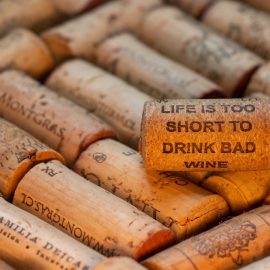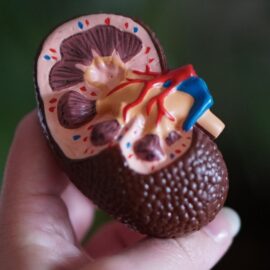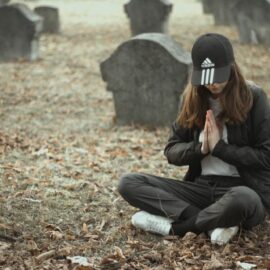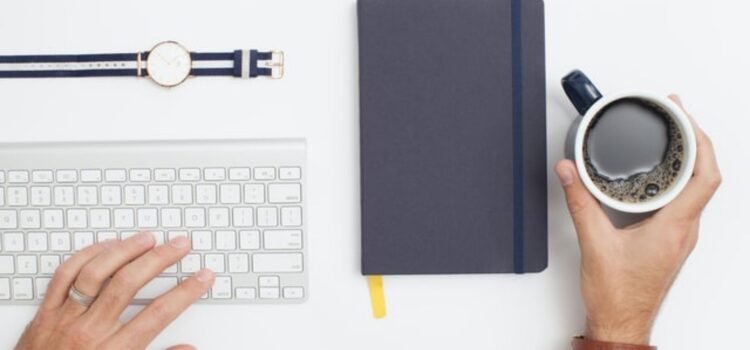
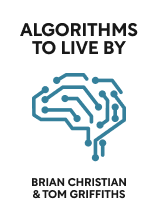
This article is an excerpt from the Shortform book guide to "Algorithms to Live By" by Brian Christian and Tom Griffiths. Shortform has the world's best summaries and analyses of books you should be reading.
Like this article? Sign up for a free trial here .
What is the best way to organize your stuff? Is it best to organize by category or by the frequency of use?
The go-to method of organization is based on category. However, organizing your belongings by category isn’t actually very efficient. To efficiently access any item, it’s best to segment your stuff based on the frequency of use.
Here is how to organize your stuff to give you the best access to the things you need.
How to Efficiently Organize Your Belongings
Christian and Griffiths explain that a computer can store vast amounts of data, but the more memory it has, the more data it has to search and the longer it takes to retrieve anything specific. Engineers solved this problem by inventing the “cache.” By grouping the information that needs to be accessed most often and searching through that smaller cache first, computers can find the data they need much faster.
Christian and Griffiths argue that we can employ this same strategy with anything that needs to be organized in our lives—our closets, files, bookshelves, you name it. To “cache” any collection, create a smaller collection of frequently used items as close as possible to the place you’ll need them. Leave a couple of your favorite board games underneath the coffee table. Keep a bowl of fruit on the kitchen counter. Put the contacts you call and text the most on your phone’s “favorites” list. Real-life applications of caching are everywhere.
The most common organizational method, organizing based on category, isn’t actually very efficient. For example, you might organize your DVD collection by genre so when you’re in the mood to watch a specific comedy, you know where to look. However, if you have a favorite movie that you show to someone new every few months, it won’t be efficient to navigate through the genres to find it every time. Instead, the authors would argue that you should have a “cache” of your favorite movies next to the TV at all times—a hall of fame with easy access.
| Marie Kondo Rejects This Method In The Life-Changing Magic of Tidying Up, Marie Kondo argues that sorting your belongings by frequency of use is a common organizational mistake. In her eyes, the seconds you may save by storing everything in “caches” within arm’s reach incur a greater cost: the clutter of countless piles around the house. Kondo asserts that this kind of “organization” is really disorganization in disguise. More often than not, we’ll drop our belongings wherever we are, then build our routines around the location of these new caches. Additionally, this system lacks a way to easily memorize where everything is, so if you need something that’s stored in an unusual place, you’ll struggle to find it. Instead, Kondo is a strong proponent of sorting by category, which Christian and Griffiths condemn as inefficient. Her “KonMari” system involves grouping together belongings such as clothes or books in a single location where each item is immediately visible. Kondo’s logic is that as long as you know where everything is, it takes very little time and effort to retrieve anything from storage. |
In their book Algorithms to Live By, Christian and Griffiths explain how to organize your stuff for better efficiency:
Rule #1: Cache what you used most recently. Christian and Griffiths assert that if you’re trying to be efficient, you’ll want to cache everything you’ll need in the immediate future. This is easier said than done. It’s impossible to perfectly predict what you’ll need—how do you know what to put in the cache?
Christian and Griffiths explain that computer engineers had to solve this exact problem and did so by developing caching algorithms, or “replacement policies.” These are rules that help computers determine what to cache and what to pass down to a larger base of storage.
The most frequently used cache replacement policy, and the one Christian and Griffiths suggest practicing in real life, is called “Least Recently Used,” or “LRU.” This algorithm dictates that when the cache is full, you should replace the item you haven’t used for the longest time. The item you used last is the one you’re most likely to use again. Keep the board game you played least recently in a cupboard rather than under the coffee table, get rid of the fruit in your kitchen bowl that’s always last to be eaten, and un-favorite the contacts on your phone you don’t talk to anymore.
Rule #2: For maximum efficiency, each cache should be a pile. Christian and Griffiths argue that, despite its unattractive and disorderly appearance, stacking cached files or clothes in a pile is an extremely efficient organizational system.
When your belongings are stacked in a pile, you typically throw whatever you were using most recently on top. This turns the pile into a “self-organizing list,” another concept the authors borrow from computing. As you use the items in the pile, this naturally-occurring LRU algorithm will eventually arrange them approximately in order of what you use most frequently. Then, if you start searching from the top of the pile, you’re likely to find what you need within the first few items.

———End of Preview———
Like what you just read? Read the rest of the world's best book summary and analysis of Brian Christian and Tom Griffiths's "Algorithms to Live By" at Shortform .
Here's what you'll find in our full Algorithms to Live By summary :
- How to schedule your to-do list like a computer
- Why making random decisions is sometimes the smartest thing to do
- Why you should reject the first 37% of positions in your job search




